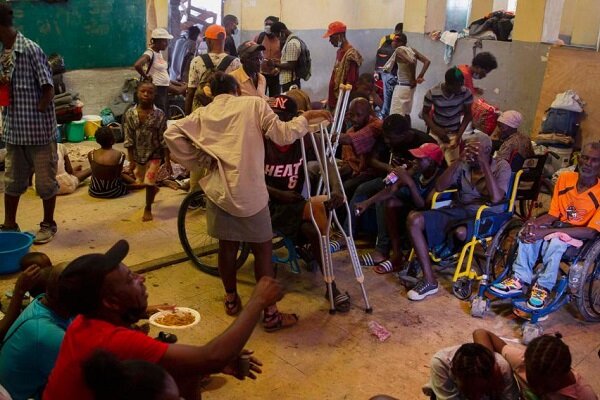In a statement on Tuesday, WFP said insecurity around the Haitian capital, Port-au-Prince, where gangs have blocked roads and seized control of neighbourhoods, has made it difficult for people to access and afford food.
More than one million people in the capital are already food insecure and deliveries of homegrown supplies such as bananas, cannot get there by road because the trucks are at risk of getting shot at or held up along the way, Jean-Martin Bauer, WFP’s Haiti country director, told reporters, according to AlJazeera.
“Large parts of the population have been cut off from the economic heart of the country,” Bauer said in the statement. “We are seeing hunger rise significantly in the capital and south of the country, with Port-au-Prince being the hardest hit.”
Armed gangs also have blocked the road leading to Haiti’s southern peninsula, the UN agency said, cutting 3.8 million people living in the southern departments off from Port-au-Prince.
The violence has forced WFP to use maritime routes to send aid to the country’s southern and northern areas, it said, while humanitarian workers must be transported by air with the UN’s Humanitarian Air Service (UNHAS).
“The only safe option for humanitarians to move is by air, and without adequate funding, UNHAS faces imminent closure by the end of July 2022. Ultimately, this puts not only WFP’s assistance but humanitarian operations across the country at risk,” Bauer said.
Haiti has experienced a deteriorating security situation since the July 2021 assassination of President Jovenel Moise, which worsened an already fraught political situation in the Caribbean nation.
The president’s killing ushered in a new wave of gang violence that the UN’s human rights chief recently said has hit “unimaginable and intolerable” levels.
ZZ/PR

























Your Comment